Search
Search Results

Image
The British-American War of 1812
This map illustrates the course of the War of 1812 (1812-1815), a conflict between the United States and Great Britain driven by trade restrictions, the impressment of American sailors, and disputes over territorial expansion. Native American...
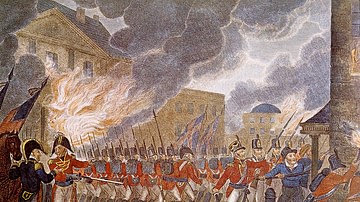
Article
Burning of Washington
The burning of Washington (24 August 1814) by a British force was a pivotal moment in the War of 1812 and in US history. Hoping to pull US military resources away from Canada, the British landed at Chesapeake Bay, defeated an American force...

Article
A Brief History of Tobacco in the Americas
The history of tobacco use in the Americas goes back over 1,000 years when natives of the region chewed or smoked the leaves of the plant now known as Nicotiana rustica (primarily in the north) and Nicotiana tabacum (mostly in the south...

Article
Battle of New Orleans - The American Agincourt
The Battle of New Orleans (8 January 1815) was the final major battle of the War of 1812, in which a ragtag American army under Major General Andrew Jackson (1767-1845) beat back a superior British force under Major General Sir Edward Pakenham...
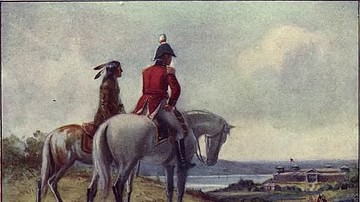
Article
Siege of Detroit
The Siege of Detroit (15-16 August 1812) was one of the first major actions of the War of 1812. After a botched invasion of Canada, a US army retreated to Fort Detroit, where it was besieged by British and Native American forces under Major...
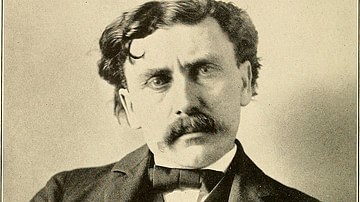
Image
James Mooney, American Ethnographer
James Mooney (l. 1861-1921), American ethnographer who helped preserve the literature, language, and culture of the Cherokee nation. Plate 1 in The Swimmer Manuscript by James Mooney and Frans M. Olbrechts, Smithsonian Institution. Bureau...
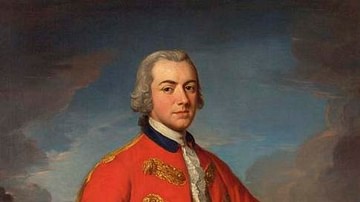
Definition
Henry Clinton
Sir Henry Clinton (l. c. 1730-1795) was a British military officer who served as commander-in-chief of the British Army in the later stages of the American Revolutionary War (1775-1783). Having arrived in Boston in May 1775, he served in...

Article
Battle of Germantown
The Battle of Germantown (4 October 1777) was a major battle of the American Revolutionary War (1775-1783) in which General George Washington launched an unsuccessful assault on the British army garrisoned in Germantown, Pennsylvania. After...
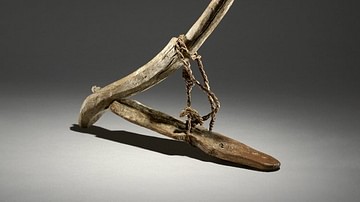
Article
Origins of World Agriculture
Agriculture arose independently at several locations across the world, beginning about 12,000 years ago. The first crops and livestock were domesticated in six rather diffuse areas including the Near East, China, Southeast Asia, and Africa...

Image
North American Indian Warrior by John White
An illustration by John White (d. 1593 CE) of a North American Indian warrior seen by the first English colonists who attempted to establish a settlement, Roanoke Colony, in 1585 CE (and again in 1587 CE). The colony was located in what is...